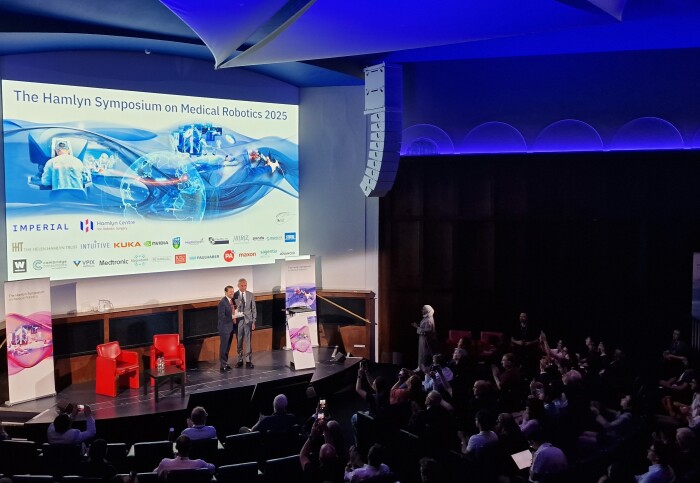The rollout of vaccines was a critical turning point in the COVID-19 pandemic. Researchers at Imperial are developing novel vaccine technologies that can be deployed quickly and equitably across the globe, with the aim to respond to new threats and prepare against emerging strains.
This involves researchers focused on immunology and vaccine development, as well as those transforming and optimising the design of vaccine manufacturing plants that are adaptable, scalable, and cheaply deployable within weeks, including in low-resource settings.
Imperial has particular strengths in self-amplifying RNA-based technologies, which produce vaccines that can be used at low doses and are less likely to cause side effects. One million doses can be made in small vats within hours.
Experts working in this area
Click on the topics below to explore the work and interests of the ~25 research groups who are working to develop new vaccines and ensure they can be made available to the global population when the next pandemic hits.
Experts working in this area
- Professor Wendy Barclay: Understanding the biology of SARS-CoV-2 variants to assess whether COVID vaccines should be proactively updated to ensure population immunity remains at levels to prevent excessive pressure on healthcare infrastructure.
- Professor Chris Chiu: Human immunity and early phase clinical vaccine trials (including RSV, influenza, SARS-CoV-2). Example (in Covid): Human challenge studies for next generation SARS-CoV-2 transmission-blocking vaccines.
- Professor Thomas Churcher: Understanding the efficacy of novel malaria vaccines; malaria new transmission blocking vaccines.
- Professor Ten Feizi: Glycosciences; Beam Search technique for analysis of intestinal glycocalyx involved in infection.
- Dr Malick Gibani: Development of a vaccine-challenge model to assess the efficacy of candidate Yersinia pestis vaccines.
- Professor Nick Grassly: Vaccine clinical trial design, vaccine development, vaccine-induced immune correlates of protection; role of vaccines for outbreak response. In Covid (example): Implementation and adherence to regular asymptomatic testing in a COVID-19 vaccine trial.
- Professor Stuart Haslam: Structural glycomics and glycobiology. Example (in Covid): Site-specific characterisation of SARS-CoV-2 spike glycoprotein receptor-binding.
- Dr Jun Ishihara: Development of lymph node targeted protein-based vaccines.
- Professor Paul Kellam: Monoclonal antibodies for passive immunisation
- Professor Faith Osier: "Making Malaria History” through vaccination; PI, The Chanjo Hub, an African-led, academic-industry partnership designed to catalyse the local ‘ecosystem’ necessary for establishing vaccine manufacturing in Kenya and Ghana.
- Professor Robin Shattock: Developing and optimising self-amplifying RNA-based technologies; pandemic vaccine responsiveness (including for Ebola, Marburg virus, Lass fever, rabies, SARS-CoV-2). In Covid (example): Development and clinical testing of self-amplifying RNA platform.
- Professor Shiranee Sriskandan: Vaccine target identification.
- Dr Ryan Thwaites: Vaccine immunogenicity, with particular interest in respiratory mucosal vaccines and antibody responses in the mucosa.
- Professor Rongjun Chen: Polymer- and lipid-based nanoparticles for targeted delivery of active pharmaceutical agents including nucleic acids and proteins. Example (in Covid): Thermostable RNA formulations for vaccines and therapeutics.
- Professor Tom Ellis: Synthetic biology. Example (in Covid): Engineered yeasts for vaccine manufacture.
- Professor Jason Hallett: Formulation of vaccines for higher thermal stability (incl. re-addressing the cold storage challenge); vaccine equity and accessibility.
- Dr Dauda Ibrahim: Systematic frameworks for computer-aided design and optimisation; quality by design and techno-economic modelling of RNA vaccine production for pandemic-response. Example (in Covid): Pandemic-response adenoviral vector and RNA vaccine manufacturing.
- Professor Cleo Kontoravdi: Process design and optimisation for rapid and mass quantity vaccine manufacturing, including for SARS-CoV-2 and HPV; computational tools for applying Quality by Design. Example (in Covid): Rapid and mass quantity SARS-CoV-2 vaccine manufacture.
- Dr Maria Papathanasiou: Biopharmaceuticals processes, including digital twins and control methodologies for process understanding, optimising, and automation, as well as supply chain optimisation, including for vaccines.
- Professor Karen Polizzi: In vivo biosensor development and synthetic biology for biopharmaceutical processing and vaccine manufacture.
- Professor Nilay Shah: Process modelling and mathematical/systems engineering techniques to analyse and optimise complex bioprocesses and design improved vaccine and therapeutic platforms. Example (in Covid): Rapid and mass quantity SARS-CoV-2 vaccine manufacture.
Scientists, including Professor Peter Openshaw, Dr Elizabeth Whittaker, and Dr Nishel Shah provide scientific advice and risk-benefit analysis related to the development and deployment of protective vaccines, including in pregnancy (see National responses informed by economics and behaviour).
Examples: Listen and watch
Key networks, studies, and resources
- Imperial Network for Vaccine Research: Addressing the major outstanding questions in vaccine development and delivery.
- Future Vaccines Manufacturing Hub: Revolutionising future vaccine manufacture through strategic partnership with researchers, national centres and industry.
- The Chanjo Hub: African-led, academic-industry partnership designed to catalyse the local ‘ecosystem’ necessary for establishing vaccine manufacturing in Kenya and Ghana.
- The Glycosciences Laboratory: Elucidation of carbohydrate recognition systems of biological and medical importance
- The London Biofoundry: Specialising in the design, engineering and functional characterisation of synthetic DNA and organisms with academic collaborators and industrial clients
- GlycoCell Engineering Biology Mission Hub: Designing, testing and make many new therapeutics, diagnostics and vaccines against pathogens that impact human and animal health.


